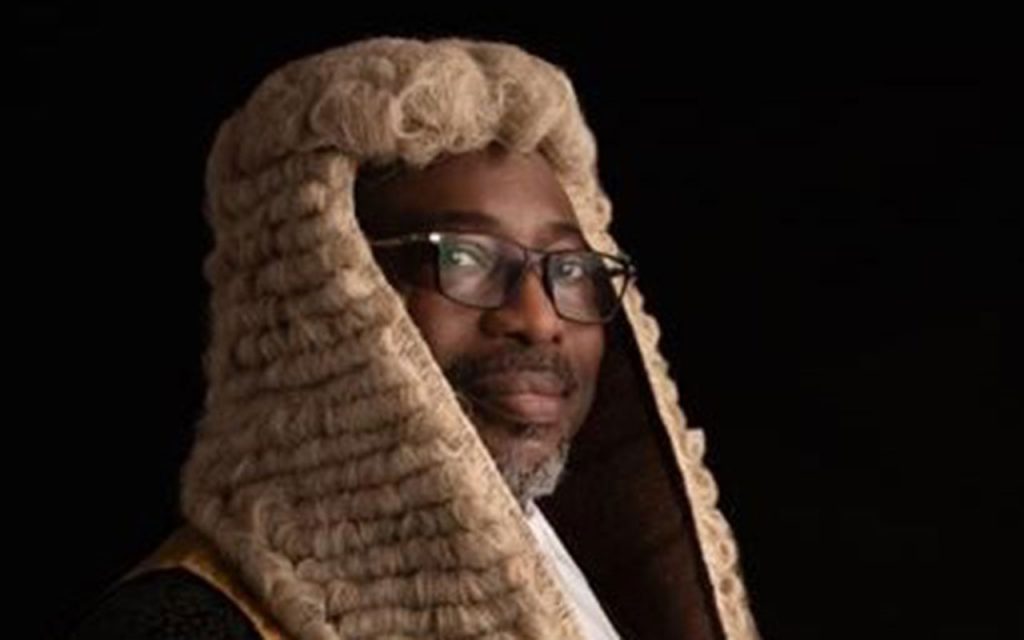The Lagos State Government has faulted the ongoing process by the National Assembly to repeal the National Lottery Act and replace it with the Central Gaming Bill, stating that it is a violation of the Supreme Court judgment.
Speaking on Wednesday during a press briefing on the proposed Central Gaming Bill before the National Assembly, Lagos State Attorney General and Commissioner for Justice, Mr. Lawal Pedro (SAN), stated that the action touches the very heart of the country’s constitutional democracy, the supremacy of the Constitution of the Federal Republic of Nigeria, and the delicate balance of powers between the arms and layers of government under the federal structure.
Pedro noted that the National Assembly can only legislate for the Federal Capital Territory on the matter, as lotteries, betting, gaming, and any other games of chance are residual matters falling within the exclusive legislative competence of the states, according to the Supreme Court judgment.
He said, “I address you today not merely as the Attorney General of Lagos State and Commissioner for Justice, but as the representative of the Government of Lagos State, in whom the Supreme Court of Nigeria — our apex court — has, in its wisdom, delivered a landmark judgment and made pronouncements on the appropriate government empowered by the Constitution of Nigeria to make law for the regulation of lotteries, gaming, and betting in Nigeria.
“It is therefore with the utmost sense of duty, humility, and respect to the legislative arms of the Federal Government that I speak today on the proposed Central Gaming Bill currently under consideration by the National Assembly. As the Chief Law Officer of Lagos State, it is both my constitutional duty and responsibility to draw the nation’s attention to the voyage of unconstitutionality embarked upon by the National Assembly to enact an Act to regulate the operation and business of all forms of online and remote gaming across the geographical boundaries of the federating units and beyond the borders of Nigeria.”
Noting that the bill had earlier been passed by the House of Representatives, he said it is now before the Senate for concurrence. On Wednesday, 8th October 2025, the Senate of the Federal Republic of Nigeria held a concurring session on a proposed legislation titled:
He added, “A Bill for an Act to Repeal the National Lottery Act No. 7 of 2005 and the National Lottery (Amendment) Act No. 6 of 2017, and to Enact the Central Gaming Bill to Regulate the Operation and Business of All Forms of Online and Remote Gaming Across the Geographical Boundaries of the Federating Units and Beyond the Borders of Nigeria, Provide for the Conduct of Gaming in the Federal Capital Territory, and Enhance Revenue Generation for the Federation and for Related Matters.
“Nigerians would recall that on 13th October 2024, the Supreme Court of Nigeria delivered a judgment in the case Suit No. SC/1/2008 – AG Lagos & 22 ORS v. AG Fed & 13 ORS in favour of Lagos State and 22 other states. In that landmark judgment, the Supreme Court held that lotteries, betting, gaming, and any other games of chance are residual matters falling within the exclusive legislative competence of the states, except in the Federal Capital Territory.
“Perhaps the respected members of the National Assembly, in particular those in the House of Representatives who passed the bill, and some members of the Senate who are in support of it, may not have read the judgment of the Supreme Court on the subject. For ease of reference and guidance, permit me to refer to some of the pronouncements of the court.”
Pedro noted that some proponents of the Central Gaming Bill argue that the bill is different because it seeks to regulate online lotteries and gaming.
He said, “My question to them is whether ‘online’ means ‘federal’ or ‘global’.
“With due respect, the argument is constitutionally and legally baseless, as the use of technology has not changed the character of the activity. Whether a lottery ticket is sold across a counter or through a mobile phone application, or a game is played online, the essential activity remains the same — a game of chance conducted within the territory of a state.
“It is my considered view that when the Supreme Court, after interpreting the Constitution of Nigeria, granted an order of perpetual injunction restraining the Federal Government and its agencies from regulating gaming and lotteries throughout Nigeria, it means that the matter was forever settled — permanently closed — unless and until the Constitution itself is amended. To now attempt to legislate again on the same subject is to defy the Supreme Court, to violate the Constitution, and to invite constitutional chaos.
“If the National Assembly proceeds with this bill, the consequences will be grave. First, it would amount to legislating in defiance of a binding Supreme Court decision, which is the highest expression of contempt of court.
“Second, it would amount to overstepping constitutional boundaries and encroaching upon state powers, contrary to the principle of federalism which Nigeria operates.
“Third, it will compel the states to return to the Supreme Court on a matter that has already been conclusively decided — a regression that undermines the sanctity of the judicial process and the finality of judgments of the Supreme Court.
“Presently, the National Assembly is traversing the geopolitical zones of Nigeria in a commendable effort to amend the Constitution. The cry across the nation is for devolution of powers to the sub-nationals, not for their concentration at the centre.
“It would therefore be a contradiction of spirit and purpose for the same National Assembly to now seek to reclaim powers that the Supreme Court — and indeed the Constitution — have vested in the states.
The rule of law is not just a legal principle; it is the soul of democracy. It requires that we respect final judicial pronouncements and uphold the separation of powers among the three arms of government.”

